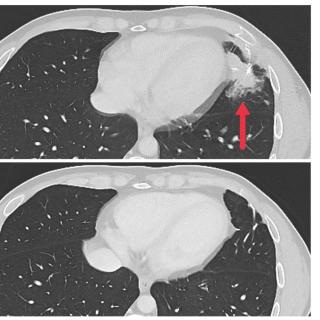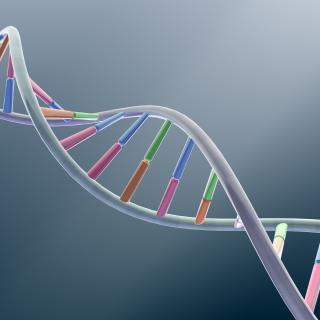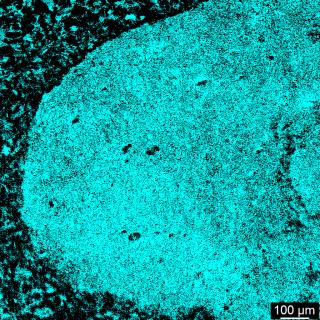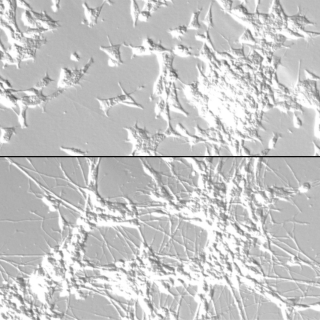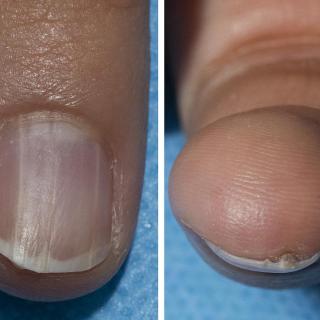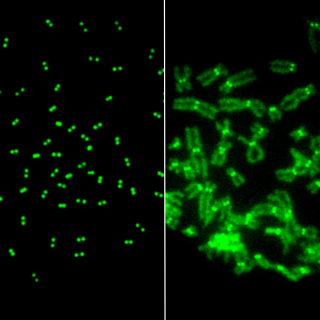Our Discoveries
New immunotherapy approach shows potential in some people with metastatic solid tumors, NIH researchers say
Early findings from a small clinical trial provide evidence that a new cellular immunotherapy approach may be effective in treating metastatic colorectal cancer. In the trial, researchers led by Steven A. Rosenberg, M.D., Ph.D., Chief of the Surgery Branch, genetically engineered lymphocytes (a type of white blood cell) from each patient to produce receptors that recognize and attack their specific cancer cells. The personalized immunotherapy shrank tumors in several patients and was able to keep the tumors from regrowing for up to 7 months.
Read MoreRepairing DNA that breaks during replication
DNA replication can generate double-strand DNA breaks. CCR scientists clarify how these breaks form and how cells repair the potentially catastrophic damage.
Read MoreArtificial intelligence model analyzes tumor images to predict patients’ response to different cancer therapies
Understanding the genetic makeup of a tumor can help doctors recommend the best treatment option for their patients, but molecular sequencing is costly and not accessible to everyone. A new artificial intelligence model called ENLIGHT DEEP-PT could help overcome these challenges.
Read MoreResearchers use artificial intelligence to tease apart subtypes of glioma
A new machine learning algorithm can dig deep into spectral data of brain tumor tissue to reveal genetic mutations, DNA methylation and even the fat content of gliomas. This research advance could help scientists better classify — and one day better treat — brain cancer.
Read MoreNIH scientists develop AI tool to predict how cancer patients will respond to immunotherapy
In a proof-of-concept study, CCR researchers developed an artificial intelligence (AI) tool that uses routine clinical data to predict whether someone’s cancer will respond to immune checkpoint inhibitors. The machine-learning model may help doctors determine if these immunotherapy drugs are effective for treating a patient’s cancer. The study, published June 3, 2024, in Nature Cancer, was led by Eytan Ruppin, M.D., Ph.D., Chief of the Cancer Data Science Laboratory, and collaborators at Memorial Sloan Kettering Cancer Center in New York.
Read MoreMaster regulators flip the switch on neuroblastoma’s developmental state
Waves of regulatory changes can transform self-renewing neuroblastoma cells into neurons.
Read MoreBenign nail condition linked to rare syndrome that greatly increases cancer risk
Researchers from CCR and the National Institute of Arthritis and Musculoskeletal and Skin Diseases (NIAMS) discovered the presence of a benign nail abnormality may lead to the diagnosis of a rare inherited disorder that increases the risk of developing cancerous tumors. The study suggests conducting nail evaluation of affected patients and at-risk family members.
Read MoreNew AI tool classifies brain tumors using images of tumor slides
A new artificial intelligence model has been found to be highly effective at identifying brain tumor subtypes — with 95% accuracy — simply by analyzing a standard pathology image of the tumor tissue.
Read MoreNew research identifies a protein essential to maintaining chromosomal stability
Researchers discovered how overproduction of a protein called CENP-A can lead to chromosomal abnormalities, which are found in many types of cancer.
Read MoreNew database of sarcoma cell line data will drive rare cancer research
CCR researchers have developed the largest publicly accessible sarcoma cell line database called Sarcoma CellMinerCDB. The tool merges previously available and new sarcoma cell line data that can be used to identify new therapeutic targets for these cancers.
Read More